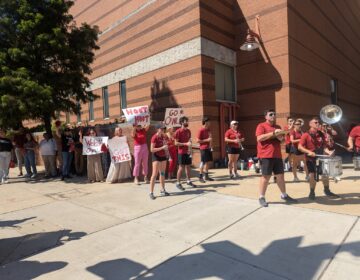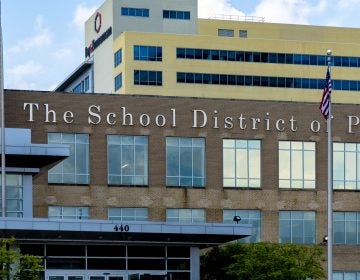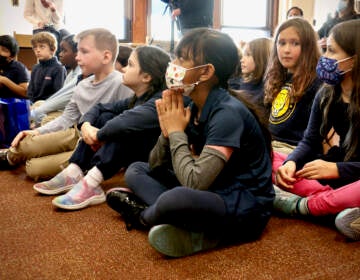‘Strapped for finances’: Pa. college students scramble for resources amid coronavirus closures
As colleges and universities across the country have been forced to pivot to a virtual, deep inequities of opportunity can leave students falling through the cracks.
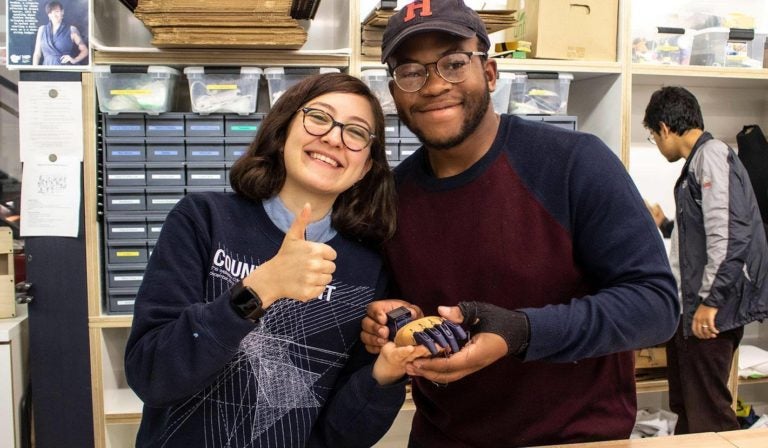
Haverford College freshman, Rasaaq Shittu (right) and Bella Merchant (Bryn Mawr ‘21) at a 3D-prosthetics charity workshop at Haverford's Maker Space before coronavirus pandemic. (Photo courtesy of Rasaaq Shittu)
Kaitlin Howard did not imagine sophomore year of college ending like this, struggling to connect to virtual classes via the overburdened internet connection at her family’s home.
Howard, 19, is a commuter who studies theatre at Temple University, and with campus officially closed during the coronavirus shutdown, she’s barred from her typical routine: going to the library to connect.
That’s made participating in livestream classes difficult.
“Whenever there’s a discussion, I have to type it into the chat because they can’t hear me,” said Howard, who lives in nearby North Philadelphia.
As colleges and universities across the country have been forced to pivot to a virtual new normal, many face the similar challenges as in the K-12 system, where deep inequities of opportunity can leave students falling through the cracks.
It’s not just internet connection. College students nationally are having to adjust to cancelled income from federal work-study jobs that are no longer available, unexpected travel, storage and housing expenses as they vacate their campuses, and growing food needs as campuses shut down dining halls to slow the spread of coronavirus.
For Howard, a big part of the current stress is finding ways to focus on school work. University practice rooms and creative labs provide space and freedom that are hard to find in her small bedroom. And she says it’s been difficult to complete assignments and learn online.

“We don’t have the library. We don’t have practice rooms. There’s nobody to accompany us on the piano if you need to practice a song,” Howard said.
She’s also one of the many Temple students who work in the restaurant industry for extra income. As nonessential businesses were made to close amid this pandemic, Howard had to apply for unemployment, which won’t cover her books and tuition expenses.
For students who lived on campus before the shutdowns, the question of room and board reimbursement has been looming.
Across Pennsylvania, colleges are taking different approaches on how to account for unused housing and meal plan balances. Some, such as Temple, have offered prorated reimbursements. Others are providing students with room and board credits, which they can apply to their next semester.
Temple University opted to partially reimburse students for unused housing. According to university spokesman, Ray Betzner, most on-campus students have already had their refunds credited to their student accounts, where they can then transfer the money to a personal checking account.
The logistics can be trickier for students who rent off-campus housing. Temple advised such students to go back home, but many students couldn’t get out of their leases and decided to stay.
Temple approved about 200 students for emergency, on-campus housing throughout the rest of the semester. This includes students who live abroad and can’t make the trip home, and students with other extenuating circumstances.
Betzner says these students will have access to grab-and-go meals, which they can access at a designated dining hall. A remote food pantry is open twice a week to any Temple student, where they will be provided with a week’s worth of groceries.
‘Missing out’
Some students being reimbursed with room and board credits are wishing for more immediate assistance during a time that can be extremely costly.
Jinny Kim, a graduating senior at Penn State’s University Park campus, is an international student from South Korea. She was granted extended on-campus housing during some of the remote learning period, but now she’s being asked to vacate her room by Saturday. While Kim will be entitled to a partial reimbursement from her college for room and board, she says the refund money will not come in time. The expense of flying back home and storage costs have proved to be a financial burden, one that her school is not helping her pay. The cost will be higher if the university decides to stage a graduation ceremony this year — and if she decided to attend.
Lauren Royer, who attends Penn State’s Abington campus, says while she’s satisfied with her room and board refunds, she believes tuition reimbursement should also be on the table. With the move to online learning, many students feel as though they are not receiving the same quality of education that was available to them during in-person instruction.
Typically, online courses are cheaper. Not now.
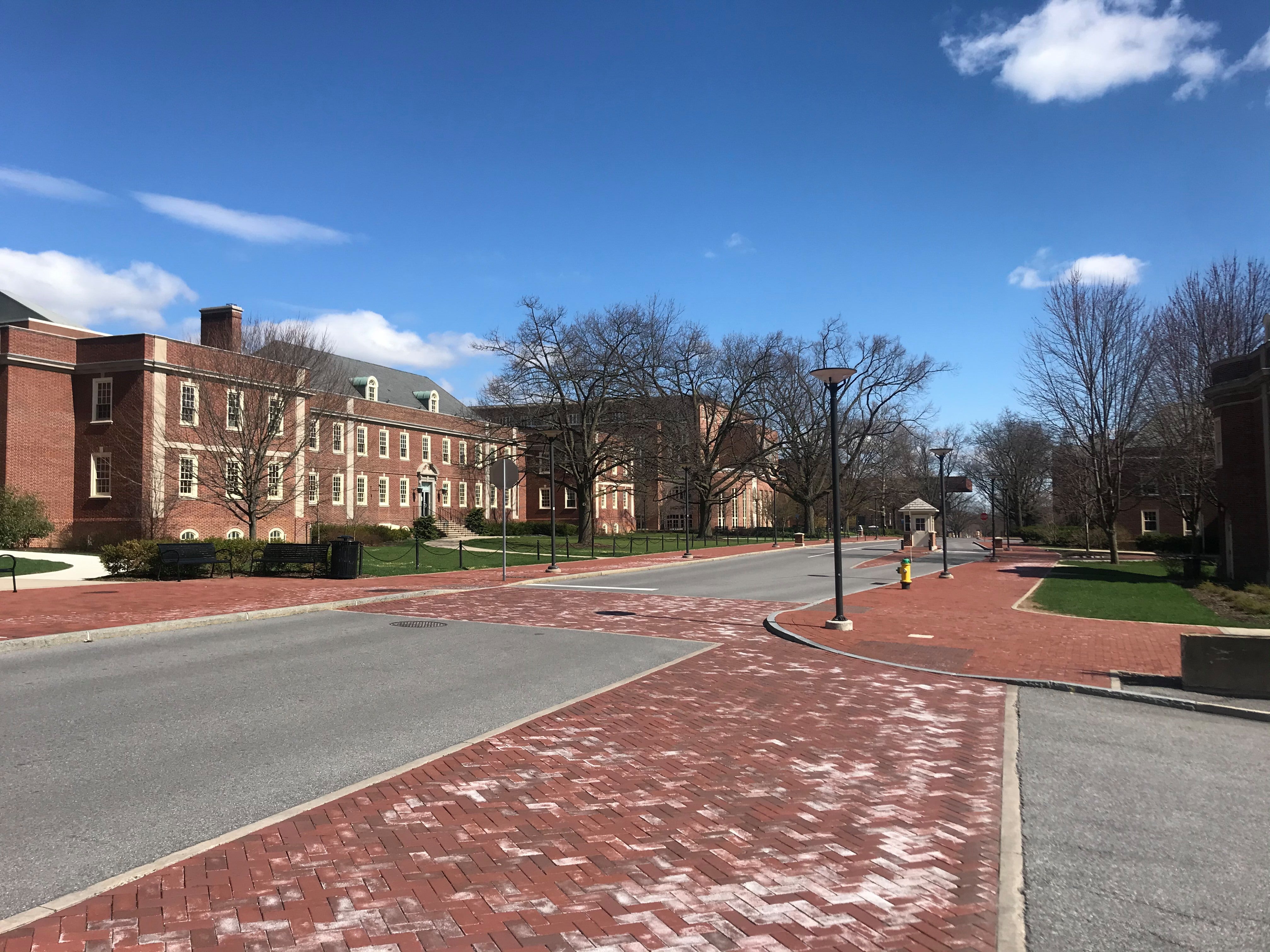
“We’re like missing out on a lot of opportunities and engagement with teachers and professors, and the community in general,” Royer said. “So in a sense, we are kinda getting … ripped off.”
Across the board, Pennsylvania colleges are not budging on tution.
“The University understands the concern over tuition and the financial strain that the coronavirus pandemic is putting on so many,” wrote Penn State university spokesman,Wyatt DuBois. “Unfortunately, we believe the cost of fulfilling our educational commitment in a remote setting is likely higher, and there are no plans to issue tuition refunds. Lab experiments are being video-streamed, technical, research and operational infrastructure needs are being met.”
As the prospect of remote learning becomes the new norm for the indefinite future, officials at colleges in Pennsylvania say they are trying to lift some of the burden the pandemic has created. Schools say they are working with landlords and local governments to minimize the financial impact on students — extending emergency housing and food options to those in need, and making student services fully accessible online.
Work-study implications
For Rasaaq Shittu, a freshman at Haverford College, the sudden loss of federal work-study income is a pressing concern.
Haverford is giving students room and board credits to be applied next semester, but that doesn’t compensate for his immediate loss of income.
“[Students] need money during this time, people are strapped for finances,” he said. “Some people who are working, they depend on that money to send home.”
Shittu works on campus at Haverford’s Maker Arts Space, a creative hub for students that offers digital fabrication and traditional craft opportunities. Though Haverford has agreed to pay students for the hours they have missed since being off campus, Shittu says he has not been guaranteed pay for scheduled future hours, and without a refund, he’s not sure how that lost income will be replaced.

Despite these many hurdles, Shittu says he’s been very happy with Haverford’s efforts in communicating with students. He says updates are frequent and arrive in many forms, including email and website updates. Shittu, who serves as the first-year student council representative, has also been moved by the outpouring of support students are extending to other students.
“The community is coming together to help each other,” Shittu said. “People [are] opening up resources, people are sending links, people are writing petitions, working together, collaborating … This reaffirms one of the reasons why I would go to a place like Haverford.”
WHYY is your source for fact-based, in-depth journalism and information. As a nonprofit organization, we rely on financial support from readers like you. Please give today.



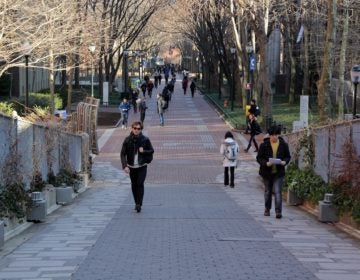

![CoronavirusPandemic_1024x512[1]](https://whyy.org/wp-content/uploads/2020/03/CoronavirusPandemic_1024x5121-300x150.jpg)
